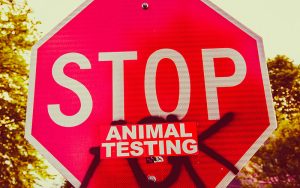
A medical ethics group is calling for an investigation into statements made by Elon Musk regarding the circumstances surrounding the deaths of numerous test animals at the billionaire’s biotech startup Neuralink; Musk says that the primates that had died were already terminally ill, but the animals’ veterinary records, along with statements from a former employee, indicate that they died as a result of complications from the company’s experimental Neuralink implants. Additionally, claims of a conflict of interest amongst the members of the company’s committee responsible for the welfare of Neuralink’s animals have been made by members of Congress.
One of the statements in question was made by Musk in response to a user on September 10 on Musk’s social networking platform, X/Twitter, where he stated that “No monkey has died as a result of a Neuralink implant. First our early implants, to minimize risk to healthy monkeys, we chose terminal moneys [sic] (close to death already).” In a November 2022 presentation, Musk also claimed that Neuralink’s research is “not exploratory,” and that the company has “done everything we possibly can with benchtop testing, and only then would we consider putting a device in an animal.”
However, these statements are in contrast to veterinary records that document the extreme suffering of as many as a dozen primates under Neuralink’s care that eventually needed to be euthanized, often under gruesome circumstances. The incidents were confirmed by an anonymous former Neuralink employee, who spoke to WIRED magazine.
“We had these monkeys for a year or so before any surgery was performed,” the individual stated. This time period was due to the requirement that the primates needed up to a year’s worth of behavioral training before they were eligible to receive the implants, a time frame that would preclude an animal that was “close to death,” as Musk put it. The former employee said that Musk’s statement was “ridiculous,” if not a “straight fabrication.”
This contradiction between Musk’s his claims of Neuralink’s animal welfare practices with publicly-available records could bring charges of securities fraud against Musk or Neuralink: with Musk’s post having been viewed over 760,000 times, he could have influenced outside investors to buy into the startup’s promise of a reliable and safe brain-machine interface. To date, Neuralink has raised over $280 million from outside investors, and was granted clearance for human trials by the US Food and Drug Administration (FDA) in May of this year.
“They are claiming they are going to put a safe device on the market, and that’s why you should invest,” explains Ryan Merkley, the lead researcher looking into animal-testing alternatives being investigated by the animal rights group Physicians Committee for Responsible Medicine (PCRM). “And we see his lie as a way to whitewash what happened in these exploratory studies.” The PCRM sent letters to the US Securities and Exchange Commission (SEC) on the issue in late September.
If the SEC does level securities fraud charges against Musk or Neuralink, it will be the third time a federal agency has investigated the company: in July, Neuralink was cleared of previous animal welfare violation charges that were brought against the company late last year after an investigation conducted by the US Department of Agriculture (USDA) found that, outside of a previously-reported incident in 2019, no evidence of further animal welfare breaches had been found, despite allegations brought against the company in February 2022 by the PCRM and more than 20 then-current and former employees.
The USDA also expunged the August 2019 incident, involving a Neuralink-contracted University of California, Davis research team that used an unauthorized surgical adhesive in an experiment on a rhesus macaque, from Neuralink’s record; the incident constituted “a serious violation… of the Animal Welfare Act,” according to the PCRM. The USDA erased the record due to a since-rescinded policy that had been used to remove incidents such as this from the public record. However, the USDA did not address an incident that occurred the previous year that involved another animal that underwent serious physical suffering due to brain damage caused by the same adhesive.
Another independent investigation revealed that 19 of the 22 members of Neuralink’s Institutional Animal Care and Use Committee (IACUC)—the internal body responsible for the welfare of the company’s test animals—were paid employees of Neuralink, a situation “presenting clear conflicts of interest,” according to a letter sent in May to the USDA by numerous members of Congress, led by Representatives Adam Schiff and Earl Blumenauer.
“Animal Welfare Act regulations state: “No member may participate in the IACUC review or approval of an activity in which that member has a conflicting interest (e.g., is personally involved in the activity), except to provide information requested by the IACUC…” according to the letter’s text. “Yet, according to the report, 19 of the IACUC’s 22 members were paid employees of Neuralink as of late 2022, presenting clear conflicts of interest.”
In his July 14 response to the Representatives’ letter, USDA Secretary Thomas Vilsack neither confirmed nor denied that the Department was conducting an investigation into the conflict of interest issue, but did confirm that the record of the August 2019 UC Davis breach had been removed due to the aforementioned policy.
Subscribers, to watch the subscriber version of the video, first log in then click on Dreamland Subscriber-Only Video Podcast link.
Lately I have come to the belief that Elon Musk is the latest Elizabeth Holmes: another flash-in-the-pan grifter. Secrecy and paranoia rule the day.